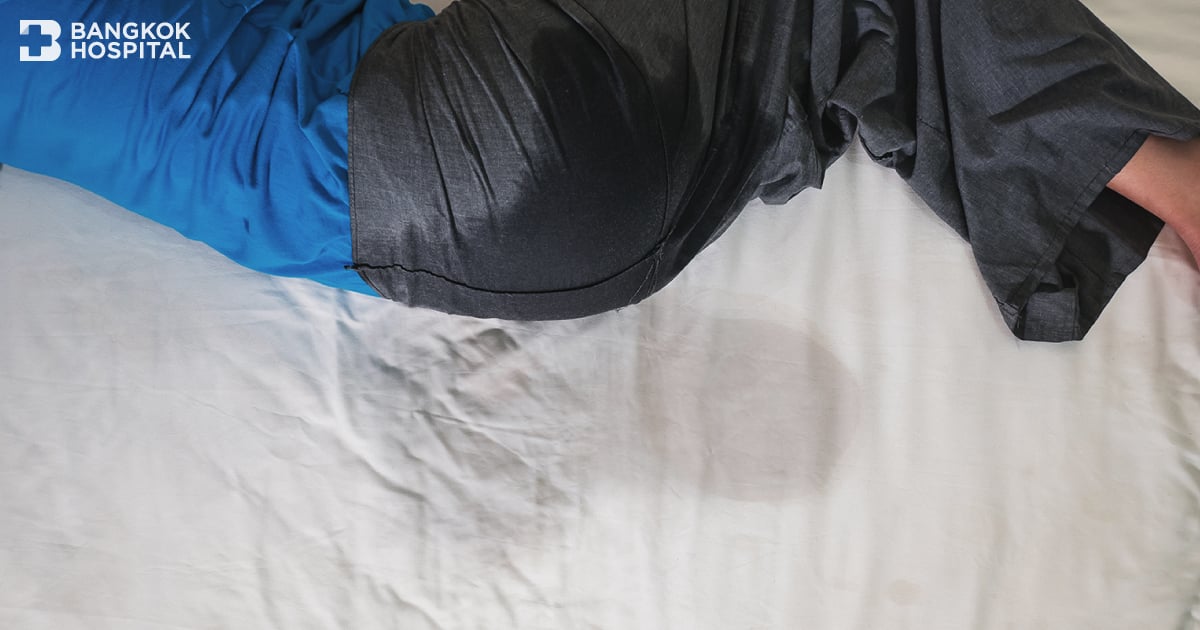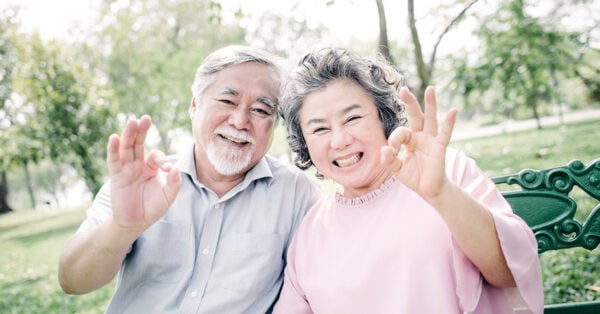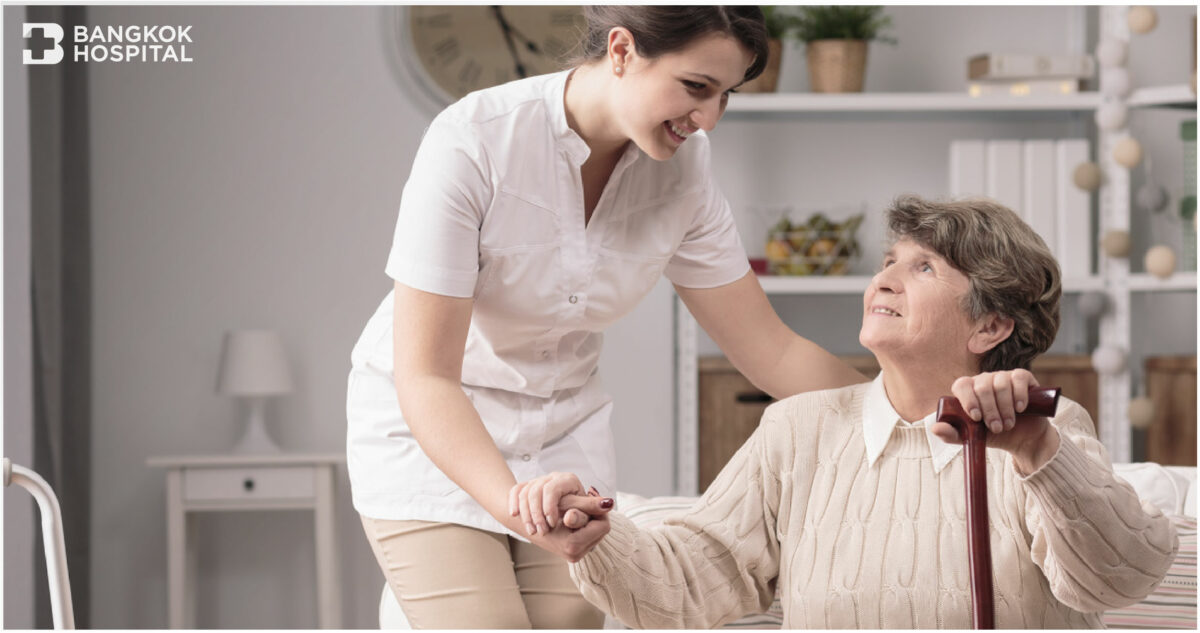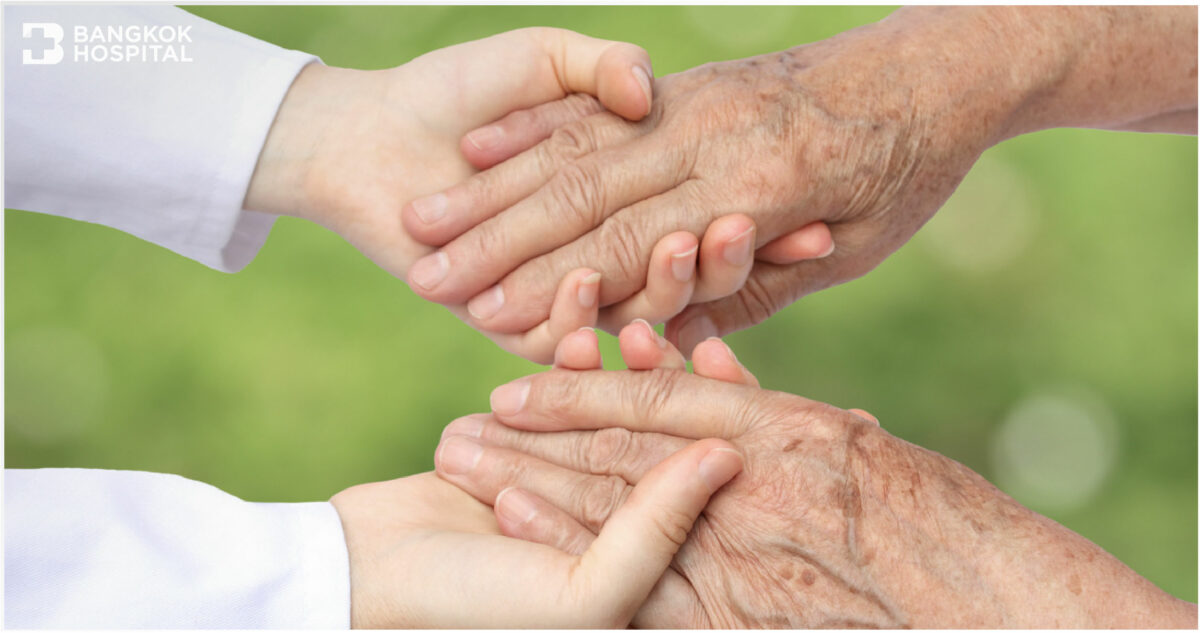Difficulties in Urinary Retention in the Elderly
Difficulties in urinary retention or dribbling in the elderly are increasingly common problems in today’s society, where the symptoms are uncontrollable, leading to difficulties in daily life and causing anxiety about participating in social activities.
Symptoms
The severity of symptoms ranges from having only a small amount of urine leaking into underwear to experiencing significant urine leakage and sometimes fecal leakage. Some elderly people may not have started experiencing the above symptoms but may begin to experience the following:- Urinating frequently at night
- Feeling of incomplete bladder emptying
- Feeling the constant urge to urinate
Factors Controlling Urination
Normally, control of urination relies on the following factors:
- A healthy urinary command center and nerve system in the brain and spinal cord
- Strong pelvic floor and sphincter muscles around the urethra
- Normal anatomical and physiological characteristics of the urinary system
- An environment conducive to urination
The Functioning of the Bladder in the Elderly
With increasing age, the following occurs:
- The bladder’s functioning begins to deteriorate, some may experience overly frequent bladder contractions uncontrollably, or conversely, too infrequent.
- The pelvic floor and sphincter muscles start to weaken, failing to contract or relax normally, especially in women who have undergone childbirth, whether naturally or by caesarean section.
- The amount of urine remaining in the bladder after urination is higher than in healthy individuals.
- In men, a common condition is an enlarged prostate, which can cause urinary leakage.
- Increase in urine production during nighttime.
Types of Urinary Leakage
- Leakage during coughing, sneezing, straining (Stress Incontinence)
- Commonly occurs in those with weakened pelvic floor and sphincter muscles, even when the bladder is not fully, leakage can occur with just a slight cough, sneeze, or strain.
- Leakage when feeling an urge to urinate (Urge Incontinence)
- Caused by the bladder contracting too frequently uncontrollably, mostly due to
- Problems with the nervous system connection from the brain and spinal cord to the bladder, such as stroke, Parkinson’s disease, dementia, spinal cord injuries.
- Problems within the urinary system itself, such as urinary tract infections, stones, tumors in the urinary tract, etc.
- Leakage during coughing, sneezing, straining, and when feeling an urge to urinate (Mixed Incontinence)
- Caused by neurological and brain diseases and severe cognitive impairment, or mental health issues.
- Leakage when the bladder is fully expanded (Overflow Incontinence)
- Caused by abnormal anatomical and physiological characteristics of the urinary system, like enlarged prostate, urethral stricture.
- Spinal cord injuries, diabetes.
- Other neurological problems.
- Side effects from regularly taken medications.
Caring for Patients with Urinary Retention Difficulties
- Consult with a doctor and show them the medications you’re taking regularly, as each type of urinary incontinence has different treatments.
- Always carry the name of the underlying disease with the elderly and show it to the doctor every visit.
- Avoid alcohol and coffee, which have diuretic effects.
- If the patient is bedridden, caregivers are advised to keep a record of the urine volume, appearance, color, and frequency, as well as the quantity and frequency of catheterization.
- If the patient requires caretaker assistance, always clean and dry the genital and rectal areas after every urination to avoid the risk of pressure sores or skin infections.
- For patients who are bedridden, avoid unnecessary permanent catheterization to reduce the risk of urinary tract infections. If catheterization is indeed necessary, perform it periodically throughout the day, and always use a sterile technique for each catheterization.












